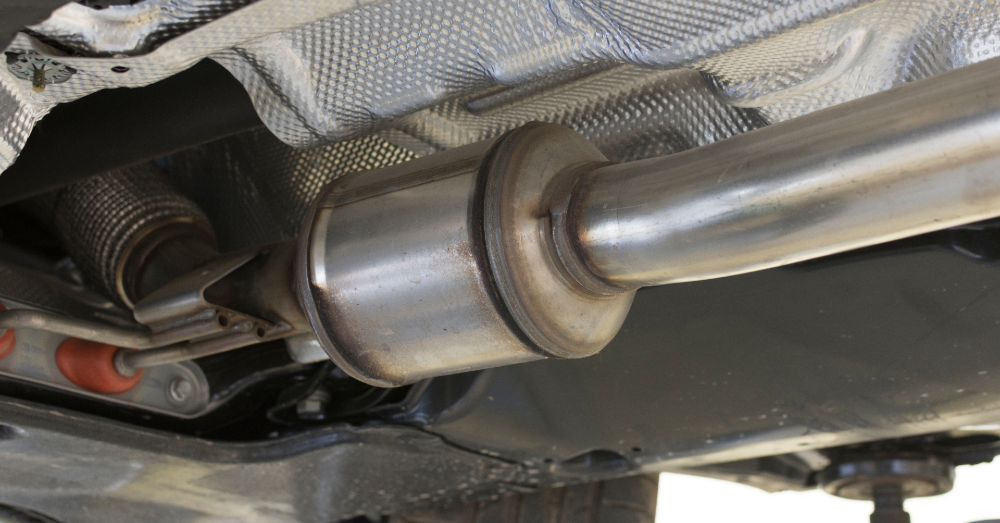
Congress Is Looking to Crack Down on Catalytic Converter Thefts
There’s been a serious increase in catalytic converter thefts since the pandemic struck. This car part is now a hot item on the black market.
The numbers have gotten so far out of hand that Congress now has to step in and find ways to solve this issue. Hopefully, Congress won’t drag its collective feet with this issue like it does so many others, but that’s not something we’re going to hold our breath for. Let’s look at what the problem is and how you can go about stopping thieves, even without Congressional intervention.
What is a Catalytic Converter?
This device is a small item incorporated into the exhaust system of your car. Its purpose is to convert pollutant gasses into less harmful versions, making them less toxic when expelled from your tailpipe. The reason thieves want this item from your car is because it happens to contain small amounts of platinum, palladium, and rhodium, all of which are metals that have risen exponentially in value since the start of the COVID-19 pandemic. This makes your catalytic converter a target for sticky fingers.
How Many Catalytic Converters are Being Stolen?
Whatever the number is, we know it’s high enough to be on Congress’s radar. During 2021, catalytic converter thefts rose to 12 times what they were in 2019. This is an incredibly high number and enough to make us pay attention. To date, more than 36 states have brought legislation to combat this problem, with 20 of them putting a bill into law. This could deter some of the thieves, but the black market isn’t named so because it operates within the parameters of the law.
What Can Congress Actually Do About this Problem?
Congress can do what some states have done, but that’s not going to stop thieves from taking these parts off of cars. A bill was introduced in January called the Preventing Auto Recycling Theft Act. While that’s an official-sounding name, it’s kind of silly, considering the aim is really only at one part of a car. Regardless, this new act would require new vehicles to have the VIN stamped on the catalytic converters, create penalties for stealing the part (aren’t there already penalties for this), and create record-keeping for those buying and selling these parts. Great, now there’s a law to focus on this unlawful act; wait, thieves don’t care about the law.
To Be Fair, There Isn’t Much Else Legislators Can Do
Legislators, as the title suggest, are in place to make laws. Once a law is signed, it’s up to enforcement officials to put the law into action. Unfortunately, catalytic converter thefts, while on the rise, aren’t going to go on the radar in many states. The raw materials from these devices can bring up to $240 from scrap dealers, and some thieves will simply sell them for much less than that to buyers that don’t care about the VIN stamped into the side. In some states, getting caught stealing this device is little more than a slap on the wrist.
Is it Difficult to Steal a Catalytic Converter?
Not really. For most vehicles, this item sits under the car, in the exhaust path, and it’s pretty easy to get to. Using a battery-powered reciprocating, an experienced thief can have this item off of a car in less than a minute. This can be troublesome for owners driving cars that are the main target of this type of theft. Replacing these devices can cost up to $3,000; shouldn’t it be a lot harder to get off of your car?
Can You Drive Without a Catalytic Converter?
You can drive without this item in the exhaust path of your car, but it’s not going to be a pleasant ride at all. The car will be much louder than normal and continue to get louder every time you accelerate. This is only one of the signs your catalytic converter has been stolen off of your vehicle. Some of the other signs include:
Increase in exhaust fumes or unusual exhaust smells
Missing parts under the car leading to the muffler
Uneven or sputtering acceleration from the lack of exhaust regulation
Check engine light on or inspection failure
In some states, it’s illegal to drive a vehicle that doesn’t have a catalytic converter, making it necessary to spend the money to have it replaced.
Which Vehicles are the Most Likely Targets of Catalytic Converter Theft?
This list is likely to change several times. Hybrid vehicles have higher quantities of these precious metals in their catalytic converters than traditional vehicles, which means we might see more hybrids on this list as long as the price of those metals increases or continues to be high enough to make the risk worth the action to thieves. The ten most targeted vehicles for theft of these devices are:
1985-2021 Ford F-Series pickup trucks
1989-2020 Honda Accord
2007-2017 Jeep Patriot
1990-2022 Ford Econoline vans
1999-2021 Chevrolet Silverado pickup trucks
2005-2021 Chevrolet Equinox
1997-2020 Honda CR-V
1987-2019 Toyota Camry
2011-2017 Chrysler 200
2001-2021 Toyota Prius
Will Your Car Insurance Cover a Stolen Catalytic Converter?
If you have comprehensive insurance coverage, replacing your catalytic converter should be covered. You’ll still need to pay the deductible, but that won’t be as much as the $3,000 average these items cost to have new ones put in. Once replaced, your car is once again a target for thieves, which means you should take some preventive steps.
How Can You Prevent You Catalytic Converter Being Stolen?
Here’s what you need to do to have the best chance at preventing catalytic converter theft:
Have your license plate or VIN etched into the device
Park indoors whenever possible, preferably in your garage
Choose parking areas that have cameras present
Park in well-lit busy areas near entrances
Install a dashboard camera in your vehicle
Install an anti-theft device for your catalytic converter
Paint the device to make it less attractive on the black market
Hopefully, between your preventive steps and the new laws from Congress and many states, theft of catalytic converters will decline and eventually disappear.
This post may contain affiliate links. Meaning a commission is given should you decide to make a purchase through these links, at no cost to you. All products shown are researched and tested to give an accurate review for you.



